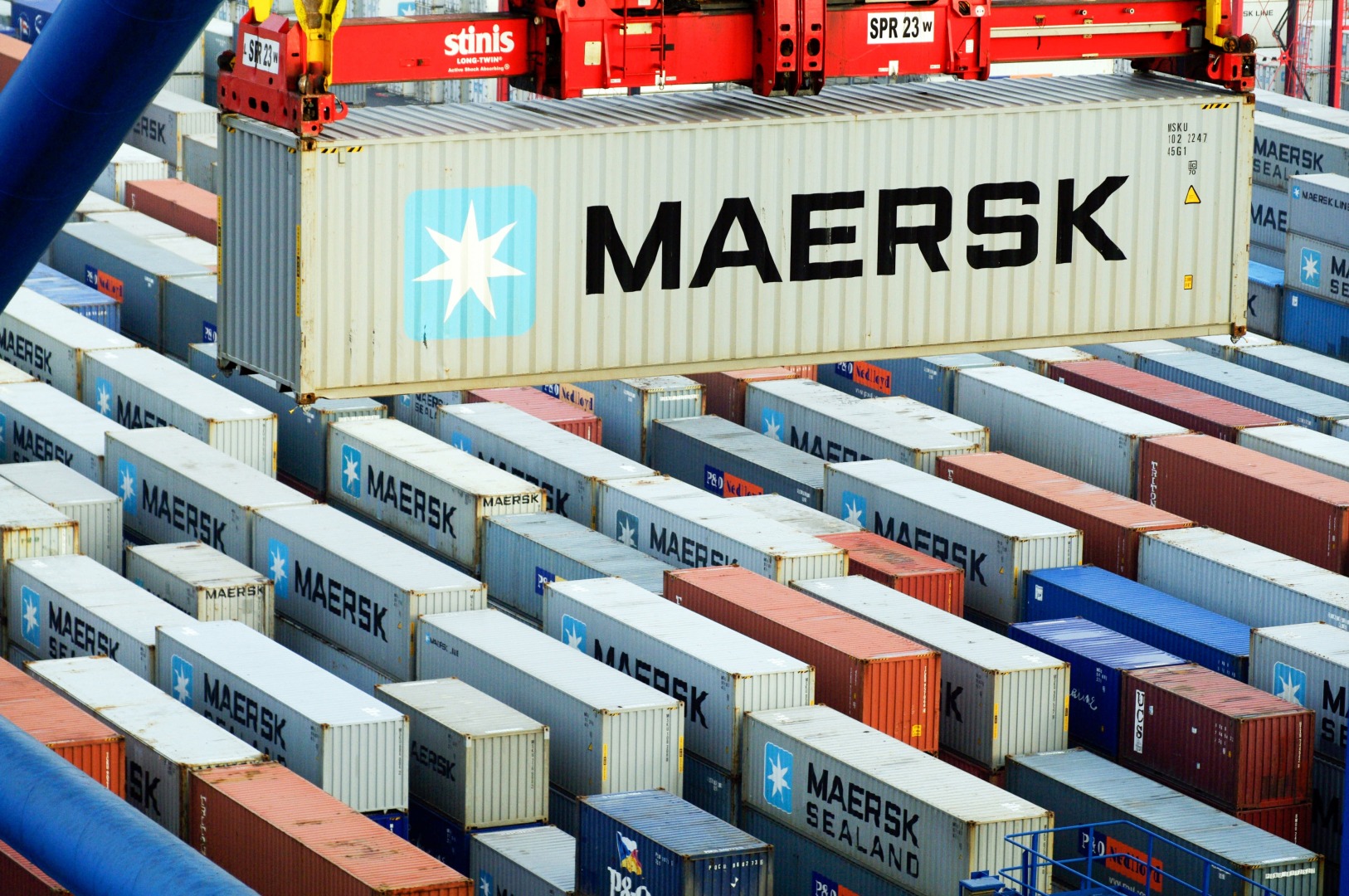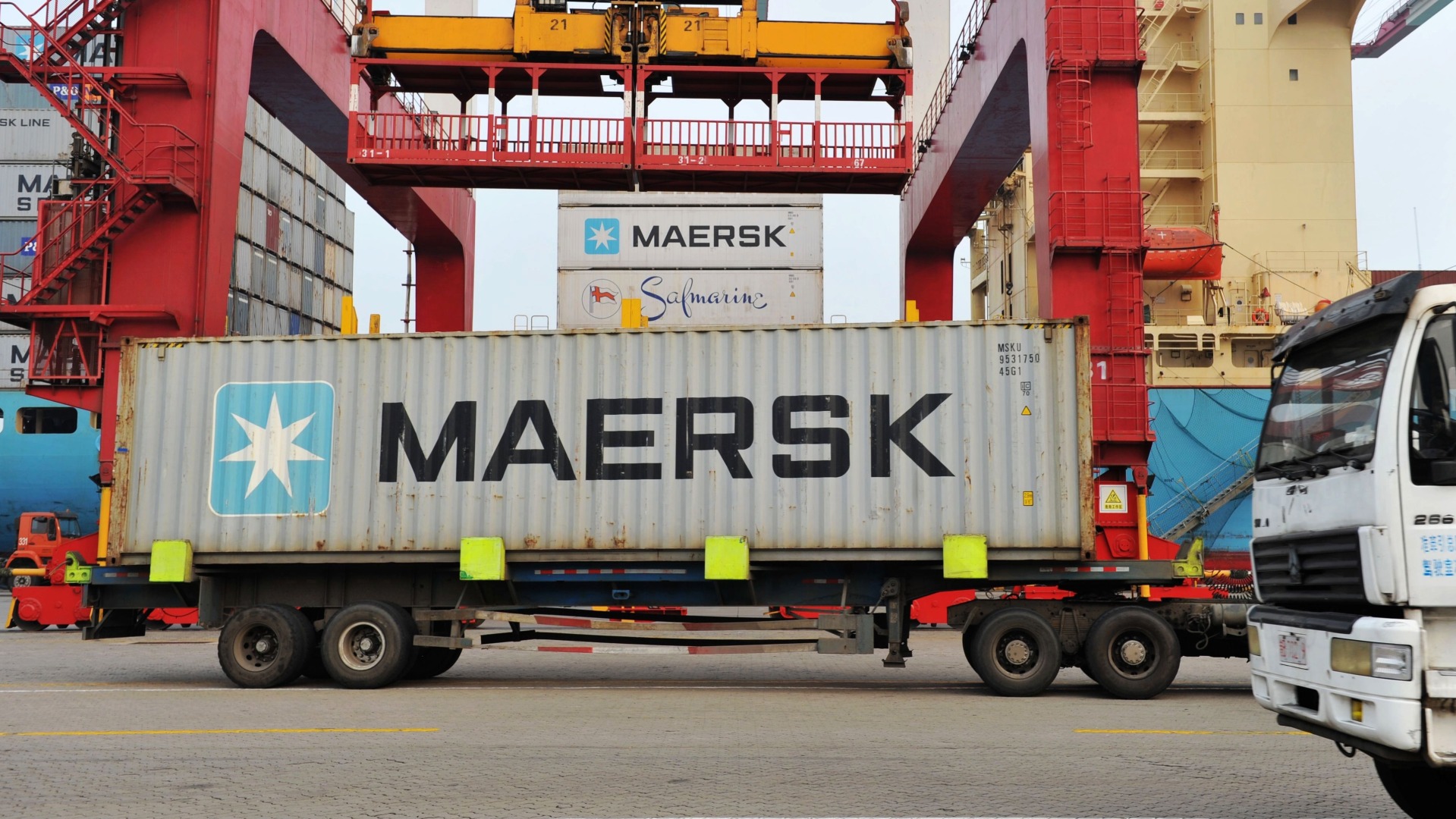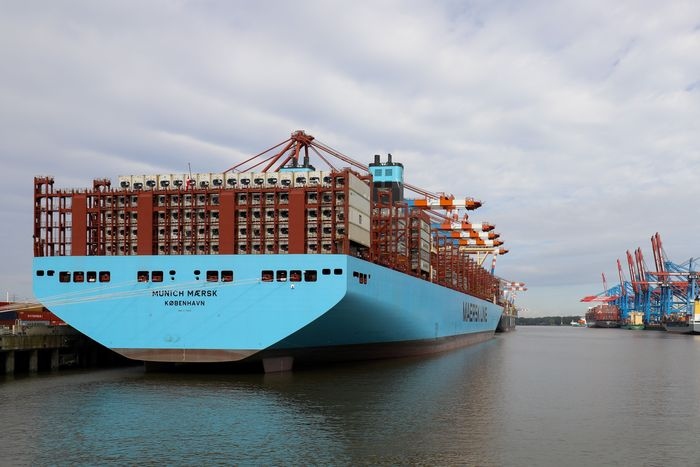Comments
- No comments found

AP Moller-Maersk is set to lay off 10,000 jobs due to a decline in freight rates and demand.
One of the world's largest shipping companies, AP Moller-Maersk, is set to cut 3,500 more jobs due to a decline in freight rates and demand.
This decision follows an earlier reduction of 6,500 positions earlier in the year as part of cost containment measures. Maersk's most recent quarterly results showed a 92% drop in profits, prompting the company to implement further cost-cutting measures due to worsening sea shipping rates.
The shipping industry faced significant challenges during the first year of the COVID-19 pandemic, with increased demand for shipping goods as lockdowns lifted and businesses resumed trading. This demand led to congestion at ports, logistical issues, and a shortage of shipping containers in Asia, contributing to rising inflation. However, recent developments, including high inflation and rising interest rates, have dampened demand for shipping services.
Maersk had already warned of a steeper decline in global demand for shipping containers by sea earlier in the year. The company cited "significant pressure on rates" over the past few months, and its CEO, Vincent Clerc, stated that the industry was facing a "new normal" with subdued demand and inflationary pressures on its cost base.

The new round of job cuts will reduce Maersk's global workforce to below 100,000 employees. Approximately 2,500 of the 3,500 job cuts will take place in the coming months, with the remainder expected in 2024. The company estimates that these redundancies will result in savings of £600 million next year. However, the specific locations of the job cuts and the types of roles affected have not been disclosed.
Maersk, which controls about one-sixth of global container trade, has already reduced its staff from approximately 110,000 to about 103,500 earlier in the year.
The latest results from Maersk suggest a slowdown in the global economy. Maersk is considered an economic bellwether due to its status as one of the world's largest container shipping companies. Transportation demand is closely linked to the overall state of the economy, with strong demand indicating economic growth and vice versa.
One contributing factor to the current situation in the container shipping industry is overcapacity. This overcapacity allows shippers to negotiate lower prices, benefiting those responsible for moving goods. However, it poses challenges for shipowners and operators, particularly as costs remain high.
The declining cost of shipping is having a notable impact on businesses and consumers. Companies that rely on shipping goods have seen a significant reduction in the cost of freight over the past six months, returning to pre-pandemic levels. For example, the cost of a shipping container has decreased from around $18,000 a year ago to approximately $2,000, enabling businesses to maintain or lower prices for consumers.
In response to Maersk's latest results and the announcement of further job cuts, shares in the group fell by 11.1% early on the day of the announcement. Despite these challenges, Maersk maintained its expectations for revenue and profits, although it cautioned that both figures were likely to land at the lower end of its estimates. The company also noted that a slowing global economy, financial stress risks, and geopolitical tensions could impact its expected improvements in the final quarter of this year and future volumes in 2024.

Maersk's decision to cut more jobs and the challenges facing the container shipping industry highlight the interconnectedness of the global economy. The shipping sector serves as a crucial barometer for economic health, reflecting the ebbs and flows of demand, inflation, and supply chain disruptions.
As the shipping industry is facing off a changing landscape marked by overcapacity, shifting consumer demands, and economic fluctuations, it is imperative for shipping companies to adapt to evolving circumstances while prioritizing cost-efficiency and operational resilience. Maersk's ongoing journey offers valuable insights into the dynamics shaping the global shipping industry and its wider implications for the world economy.
Leave your comments
Post comment as a guest